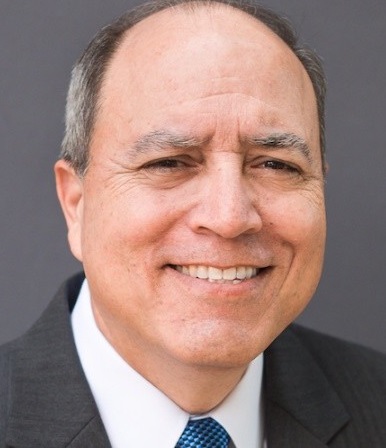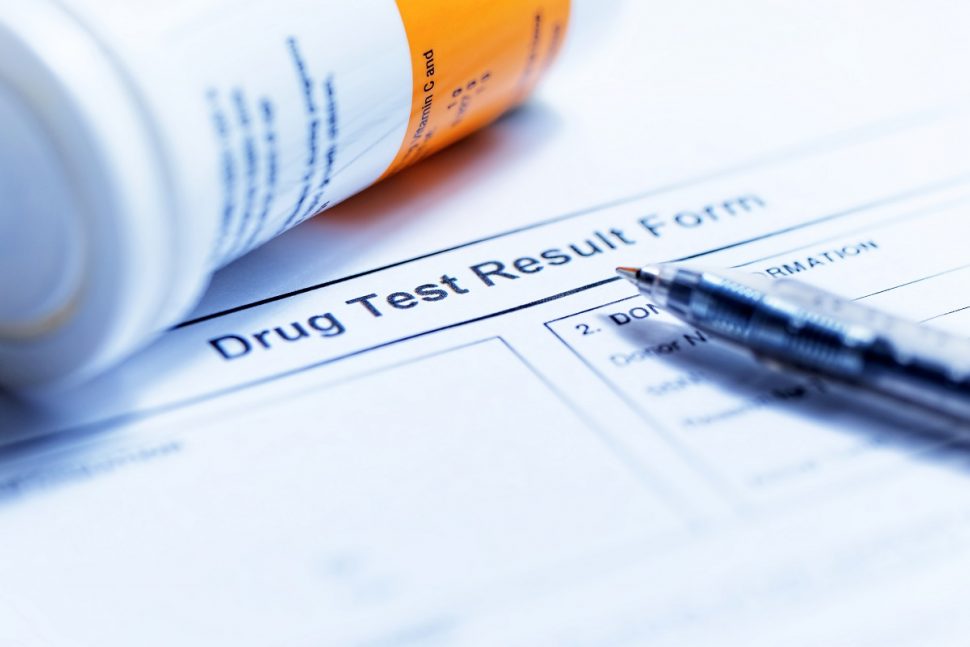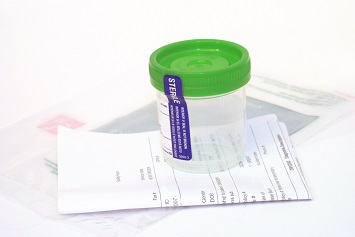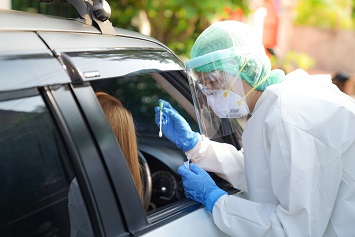While we are still amid the COVID-19 pandemic, increasing vaccination rates and better workplace safety guidance have led organizations to look ahead to return-to-work scenarios in a post-COVID business world. One environment, health, and safety (EHS)-related angle that may be a bit overlooked is your drug and alcohol testing program. Drug and alcohol use has spiked during the pandemic; what does this mean for your safety and testing programs as many of these workers begin transitioning back into the office? On today’s episode, we chat with Bill Current, President of Current Consulting Group, about some considerations for returning to the office.
Justin Scace: Hello, everyone, and welcome to EHS On Tap. I’m your host Justin Scace, senior editor of the EHS Daily Advisor. Now, while we’re still all amid the COVID-19 pandemic, increasing vaccination rates and better workplace safety guidance have led organizations to look ahead to return-to-work scenarios in a post-COVID business world. One EHS-related angle that may be a bit overlooked is your drug and alcohol testing program.
Drug and alcohol use has spiked during the pandemic. What does this mean for your safety and testing programs as many of these workers begin transitioning back into the office? Today, we’ll be talking to an expert about some things to consider. Our guest on the show today is Bill Current, President of the Current Consulting Group. Bill is the author of Why Drug Testing: Updated and Expanded for 2020, as well as nine other books on substance-related issues. And his Current Consulting Group, founded in 1998, has become the number one recognized brand name in compliance, business development, and operations consulting in the drug testing industry.
Bill will be presenting a free EHS Daily Advisor webinar, sponsored by OraSure Technologies, on Wednesday, April 7 at 2 p.m. [Eastern] entitled How to Keep Employees Safe in 2021, which will be an overview of COVID, vaccines, testing, and return-to-work drug and alcohol testing.
Bill, thanks for joining us on EHS On Tap.
Bill Current: Thank you, Justin. It’s a pleasure to be here with you.
Justin Scace: Absolutely. You’re the author of Why Drug Testing, so let’s start with that. Why drug testing? The workplace safety benefits are pretty obvious. But, what are some of the other benefits of a well-constructed drug testing program? And what are key factors in creating a successful program?
Bill Current: Well, workplace drug testing has been around for more than 30 years. In all of that time, it has proven to be a powerful deterrent to drug abuse in the workplace and an effective way of identifying people who need help. Now, we live in an era, like you just mentioned, where substance abuse is increasing dramatically, and so the need for drug testing has never been more important than it is now. There may be a temptation on the part of some employers to consider whether they should do drug testing or whether they should drop marijuana from their drug testing panel, but the truth of the matter is that right now, because of the dramatic increase in substance abuse during the pandemic and also the dramatic increase in the use of marijuana as a result of more and more states legalizing marijuana, drug testing is just essentially … it’s never been more important.
Now, where do you start? You have to understand that first, drug testing is legal in all 50 states. It’s mandated under certain federal programs, like the U.S. Department of Transportation, and as a result, there are a lot of laws out there that an employer has to comply with. The first step is to make sure that you’ve got a drug testing policy that complies with every applicable law. The question I get asked most often is: “I’m in 30 states. Which law applies to my company?” The answer is all 30. Within some states, there are multiple laws. There may be a workers’ comp law, a workers’ comp denial law, a drug testing law, or case law. There are all kinds of laws to take into consideration, as well as the legal marijuana laws. So, make sure that you’ve got a drug testing policy that takes into consideration all the different laws that apply to you. That’s step number one. It’s an important step; it takes time to do that.
Now, here at the Current Consulting Group, we write drug testing policies. I’m not saying that to encourage people to call me on that. But, I want to tell you that recently, we were dealing with a new client. It was a company that was in more than 30 states, and it had a two-page drug testing policy—two pages. Period. That was all it was. We didn’t even have to spend any time reviewing the policy because I was able to tell them, just right out of the gate, that this policy is woefully inadequate for your drug testing program. There are 30 states of laws and regulations and case law that need to be taken into consideration, or else you’re going to find yourself perhaps having your program challenged in one state after another and not having the policy to fall back to.
Probably, the number one priority right now as a result, especially, of the legalization of marijuana in the drug testing business right now is legal defensibility, or making sure you have a program that is legally defensible. There are three drug testing methods that have been endorsed by the federal government: lab-based urine testing, which has been around for more than 30 years; since October 2019, lab-based oral fluid testing; and then, more recently in 2020, a notice of proposed rulemaking for hair testing, or testing hair for drugs. In this litigious environment that we live in, especially with the legalization of marijuana, those three drug testing methods are safe ground for employers.
Choose one of those three testing methods, and you’re probably going to be in good shape if anybody ever challenges your program because you’ll be able to go back and say, “We followed the guidelines that have been issued by the federal government for” you pick your drug testing method—urine, hair, or oral fluid. And “We follow those guidelines on every single drug test that we do. We’re consistent, from test to test to test.”
That’s where it starts for an employer. Make sure you have a policy in place that complies with the different laws that apply to you. And then choose a drug testing method that meets your needs, of course, but that has that federal endorsement behind it to be able to strengthen your legal defensibility when it comes to drug testing.
Justin Scace: All right, right. Now of course, COVID-19 has been the biggest EHS issue of the past year. And, as we’ve been talking about here, drug and alcohol use has been on the rise during the pandemic. What does this mean for drug testing programs as people may begin heading back into the office?
Bill Current: You said it, Justin. During the pandemic, there are a number of studies that show that the sale of various types of alcoholic beverages has increased dramatically and that the sale of marijuana in states where it’s legal to purchase it, either for medicinal purposes or for recreational use, has skyrocketed.
Now, what’s interesting is that, back at the beginning of the pandemic, one of the buzzwords that we all became familiar with was “essential companies” or “essential businesses.” What was an essential business back then? Well, we found out that Target and Walmart were essential. We had to have those open. But, a lot of small companies were not allowed to be open because they were not deemed essential. Well, as a result, a lot of people became unemployed, and a lot of people were at home trying to cope with the stress and the anxiety that was caused by the pandemic and the lockdowns, the loss of employment, the loss of income, etc. Some people, unfortunately, turned to drugs and alcohol as a way to self-medicate their way through the early days of the pandemic. And as a result, there are studies that show that the rate of substance abuse and alcohol abuse has really gone up in a significant way. As you saw the unemployment rate skyrocket, you also saw a corresponding increase in substance abuse.
Now, months later, many workplaces are opening up again, and many people are either being hired or being called back to work. But unfortunately, a significant percentage of those individuals have increased their drug abuse during the COVID pandemic, and now they’re coming back to work either with a propensity to continue using drugs—maybe they’re more addicted than they were before—or maybe just more dependent, psychologically, on the drugs to get through the challenges and the stress, etc. But for employers, it creates a significant problem because the laws that apply to the employers still apply.
There are a couple of different doctrines of law that are important for employers to understand. One is called Respondent Superior, and the other one is Negligent Hired. Respondent Superior, for example, says that you, as an employer, are responsible for the acts of your employees when they’re functioning in the scope of work, in the scope of employment. Now, you’ve got these people coming back to work, many of them abusing drugs and abusing alcohol, and you’re putting them back behind the wheel of a forklift, a delivery vehicle, or some other safety-sensitive job, and you’re responsible for their behavior while they’re representing the company, while they’re within the scope of work for your company. If they do something, heaven forbid, that causes property damage or harm to another person, you, the employer, are responsible for that.
Your defense is to be able to say, “We made a good-faith effort to ensure that all of our employees were drug-free.” The way that you show that is by putting out your policy and saying, “This is our drug testing policy; this is how we do it. We do it this way every time, and the individual still slipped through the cracks.” At that point, the employer’s got a defense. It is able to say, “We did the best we could, and here’s our policy to prove it.” If you don’t have that in place, then you’re really at the mercy of whatever the legal system throws at you because you didn’t really try to ensure that your workers were drug-free and as safe as possible, not only for the general public but also for your other workers and your customers who come into your establishment, etc. You have an obligation to them to make sure that you’ve done everything possible to secure the safety of your workplace, and drug testing helps you do that.
Justin Scace: Definitely. Back to those good policies for drug testing. But, there are a lot of other variables that we’re all talking about right now for returning to a new normal, such as COVID testing and vaccination. Now, how do these other factors interact with an employer’s drug testing policies as it gets its employees returning to work?
Bill Current: Well, it’s really all part of a wider “keep employees safe” approach. It’s not just drug testing anymore, as effective and powerful as that is. But under these circumstances, it involves workplace COVID safe practices, like testing your workers, taking the temperature when people come into the workplace, and sanitizing your workplace throughout the day, every day. They all work together to create a safe working environment for your employees, and that’s really what it’s all about; it’s about safety—physical safety, health safety, making sure that the work environment is a place where people feel safe and comfortable. They don’t come to work every day afraid that they’re going to be exposed to the virus because you’ve done everything that you could.
In the same way that an employer really shouldn’t consider dropping drug testing in the middle of a substance abuse surge, it shouldn’t neglect COVID safe practices, like COVID testing, for example, in the middle of a pandemic. Now, you might say, “Bill, we’ve got a vaccine out there. Supposedly by this summer, every adult who wants it is going to have it. Do we really need to keep doing these things?” I think the best advice I would give to an employer and the things that I tell our clients is that COVID safe practices are here to stay. I just don’t think that’s going to go away any time soon. I think there’s still a lot that we don’t know about COVID infection rates and the spreading of the disease and how long will people be immune or protected from infection after they get the vaccine; there are just so many questions that we don’t understand yet. And then there are variations of the original COVID-19 virus.
So there’s a lot we don’t understand yet, and the best, safest practice for the employer is to keep drug testing because of the increase in substance abuse, but also be vigilant about those workplace COVID safe practices because I think they’re here to stay, at least for the foreseeable future.
Justin Scace: Yeah, absolutely. Our audience for this podcast is EHS professionals. What’s their role amid all this? How can EHS managers and professionals help their companies and their employees get back to work safely in 2021?
Bill Current: Well, I think the biggest concern that comes to my mind is: What are people thinking when they come to work every day? Are they concerned? Are they worried? Do they panic every time somebody sneezes or coughs? Or, things that we just took for granted in the past. I think for that reason, it’s important that professionals in this particular area not take any shortcuts. For example, make sure you have a solid drug testing program in place, but also make sure that you have a solid workplace COVID safe practices program in place, as well.
The bottom line is safety, and people look at safety in different ways. It could be safe from accidents, but it also can be safe from becoming sick in an environment that’s not well-maintained, not well-sanitized, etc. I think, going forward, that the people who would typically come to one of your webinars because of their professional background are probably going to play a key role going forward, if not the most important role going forward, in terms of helping individuals feels safe and secure when they come to work in the morning or safe and secure if they’re visiting your workplace to purchase something or to interact with your employees in any way or having individuals come into people’s homes to do work in their homes. You want to be dealing with a company, and you’re more likely going to deal with a company that can promote the fact that it’s doing these things to keep its workplace drug-free, as well as COVID-safe.
I know, in the old days, the old days before COVID, so 12 months ago …
Justin Scace: Right!
Bill Current: But, in the good old days, when I would hire a contractor to come into my home to do anything, I always looked to see if it had a drug-free workplace program in place and if it promoted that because I was bringing its people into my home environment, and I wanted to make sure that I was going to be safe and my whole family was going to be safe.
I think going forward, it’s going to be the same thing when it comes to COVID. You’re going to look to make sure they’ve got a drug-free workplace program in place, like we’ve been doing for years, but going forward, we’re going to want to make sure that they have a COVID safe practices program in place. I think the people who would typically attend your webinar are the people who are going to lead that charge in the future.
Justin Scace: Yes, definitely. Today, on this podcast, we’ve talked a little bit about some of the issues you’ll be covering in your upcoming webinar, speaking of webinars, on April 7. Could you share with us a little bit more of what folks can expect when they attend your presentation?
Bill Current: Well, we’re going to go into a lot more detail about the things that we’ve discussed today. But, we’re going to approach it from a very practical standpoint. We’ll talk about COVID testing, we’ll talk about what legal rights or restrictions may apply to an employer when it comes to COVID vaccinations and what you can require of employees, all necessary for not just addressing COVID in the workplace but also making sure you’re doing it legally, in the legally defensible way. We’ll talk about those things in more detail. And, we’ll also talk about drug testing from a very practical standpoint.
I know it’s a little bit of a sexy thing to talk about all the statistics, and they’re dramatic statistics that show substance abuse up dramatically over the last 12 months, but we know that. We’ll talk a little bit about that. But then from a very practical standpoint, we’ll talk about how to address those two key issues so that you have a wide, comprehensive safe workplace program in place that covers both of these really hot topics: COVID and substance abuse.
Justin Scace: Right. Well, we’re looking forward to learning more at your live webinar. Thanks very much, Bill, for joining us today on EHS On Tap.
Bill Current: Thank you very much, Justin.
Justin Scace: To those in our audience, to learn more about the issues we’ve been discussing in this episode, join Bill Current for an upcoming free EHS Daily Advisor webcast, How to Keep Employees Safe In 2021, an overview of COVID, vaccines, testing, and return-to-work drug and alcohol testing. This presentation, sponsored by OraSure Technologies, will take place on Wednesday, April 7, 2021, at 2 p.m. Eastern time. You can save your seat today by registering via the links on this podcast episode’s EHS Daily Advisor Web page.
Thanks for tuning in, and remember to keep an eye out for new episodes of EHS On Tap, and keep reading the EHS Daily Advisor to stay on top of your safety and environmental compliance obligations, get the latest in best practices, and keep your finger on the pulse of all things related to the EHS industry. Until next time, this is Justin Scace for EHS On Tap.
 Bill Current is the President of the Current Consulting Group (CCG) and a 30-year veteran of the drug testing industry. He is the author of 10 books on substance abuse-related issues and a regular presenter at conferences, seminars, workshops, and webinars. He is widely considered one of the leading experts on drug testing and the drug testing industry. Bill Current is the President of the Current Consulting Group (CCG) and a 30-year veteran of the drug testing industry. He is the author of 10 books on substance abuse-related issues and a regular presenter at conferences, seminars, workshops, and webinars. He is widely considered one of the leading experts on drug testing and the drug testing industry.
Join Bill for his free webcast “How to Keep Employees Safe in 2021” on Wednesday, April 7 at 2 p.m. Eastern time. Register Now! |
EHS on Tap is an EHS podcast by BLR’s EHS Daily Advisor. On each episode of EHS on Tap, our host will discuss emerging legal, regulatory, and policy issues with industry experts and the impacts to everyday safety and environment professionals. EHS on Tap topics run the gamut of contemporary issues facing EHS managers and professionals today.
You can find and subscribe to our podcasts on Spotify, Amazon Music, Google Play, and iTunes, and also be sure to visit our SoundCloud page for a full listing of all of our episodes!





